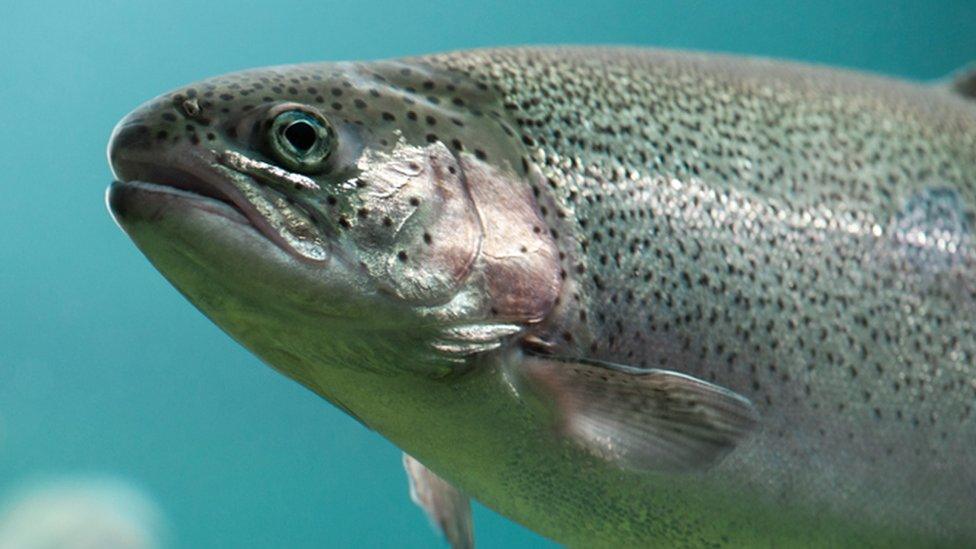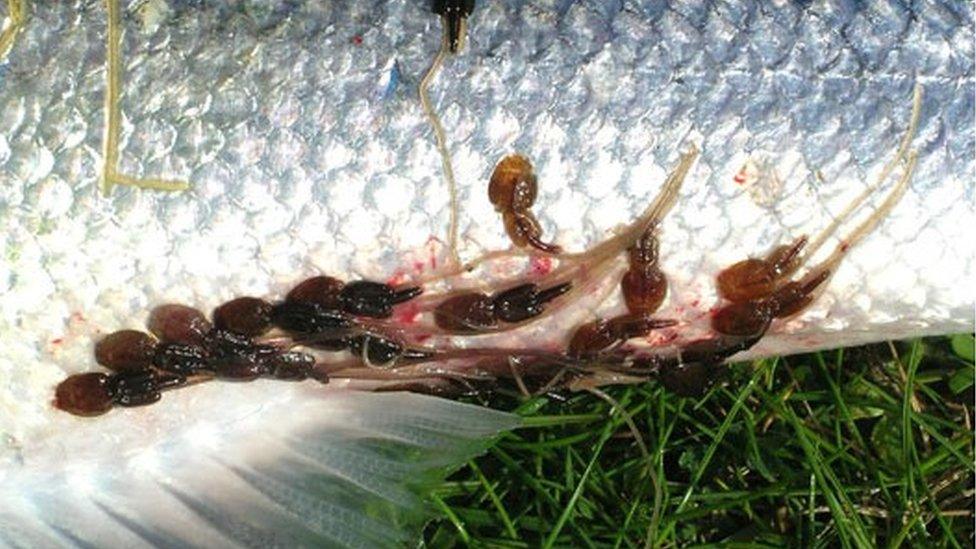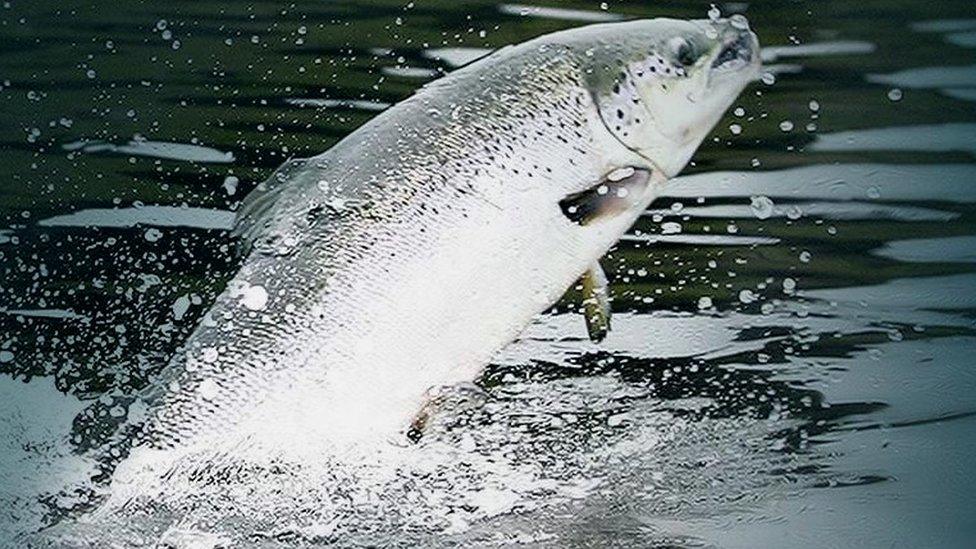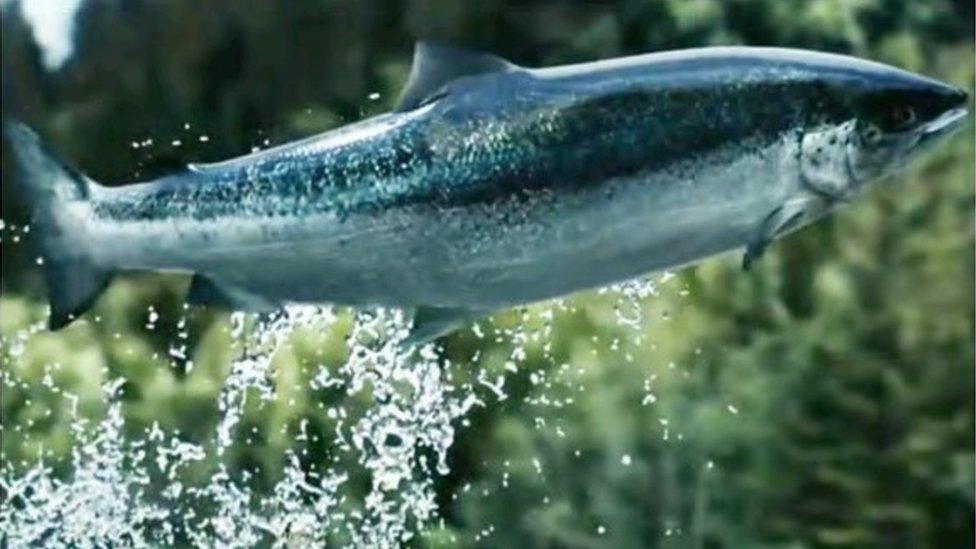Sepa probes pesticide use at Loch Etive trout farm
- Published

Dawnfresh produced 3,000 tonnes of rainbow trout at Loch Etive last year
Environmental regulators are investigating a west Highlands trout farm for breaching rules on the use of a pesticide to control parasites.
The Scottish Environment Protection Agency (Sepa) said Dawnfresh had used azamethiphos excessively at one of its sites in Loch Etive.
Azamethiphos is an organophosphorus pesticide which is used to control parasites such as sea lice.
Dawnfresh confirmed there had been a "very small number of errors".
The company, which is one of the UK's largest trout producers, added that it was working with Sepa to ensure the farm had "the lowest possible impact on the environment in the future".
The regulator was alerted to the breach of rules by the conservation charity Friends of Loch Etive.
Dawnfresh produced about 3,000 tonnes of rainbow trout at Loch Etive last year.
A Sepa spokesman said: "Sepa is in contact with Dawnfresh regarding occasions where consecutive bath treatments with azamethiphos were carried out at Etive 6 (site) less than 24 hours after the first treatment.
"These treatments are not in compliance with the site's CAR (Controlled Activities Regulations) licence.
"We will be undertaking further investigations into this matter with the company."

Sea lice can weaken the health of fish such as salmon and trout and affect their growth
Fish farms in Scotland and elsewhere use a variety of methods, including chemicals, in an effort to control sea lice, which can weaken the health of fish and its growth.
Dawnfresh Farming director Stewart Hawthorn said that last year the company recorded a "historically low number of sea lice" in Loch Etive after it took a "more proactive approach to the problem".
He said: "Unfortunately, there were six instances on one of our sites where we did not meet our usual high standards in the technical implementation of a treatment.
"This is particularly frustrating for us because Sepa has confirmed that without these very small number of errors, the site would have been rated as 'excellent' in environmental compliance.
"We will be working with Sepa and our own team to ensure we have the lowest possible impact on the environment in the future."
Mr Hawthorn added: "Overall we are proud of our record of environmental compliance.
"The other three operating sites on Loch Etive achieved ratings of excellent (two sites) and good (one site).
"Two further sites will not be operated again precisely because we do not feel we can do so whilst meeting the highest standards of environmental protection.
"Going forward into 2017 we remain committed to effectively controlling sea lice and are already in the process of putting in place new treatment methods which will further reduce our reliance on chemicals."
- Published14 February 2017

- Published12 April 2017
